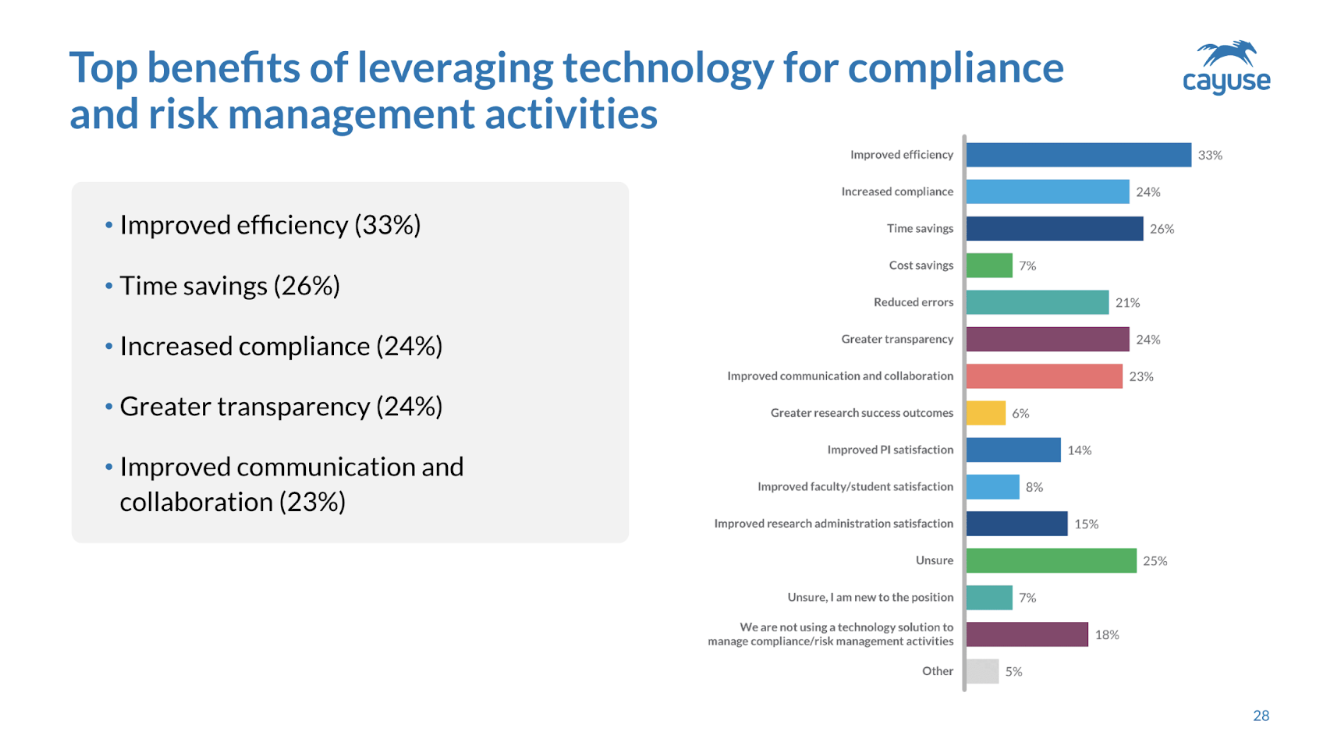 Blog by Darlene Nawrocki, Cayuse Sr. Solutions Consultant and former Research Administrator, Compliance
Blog by Darlene Nawrocki, Cayuse Sr. Solutions Consultant and former Research Administrator, Compliance
“I know I took that training months ago!”
“I don’t remember where I’m supposed to go to take that required training.”
“Can’t I just take it while it’s sitting with the IRB? It’s going to be there for a while anyway!”
Reflecting on my days as a research administrator for compliance, I recall many difficult and sometimes combative conversations with my PIs about completing mandatory training sessions.
“No, you took the Belmont Report training, Dr. PI. You need to take the HIPAA Privacy training and two other modules.”
“You can request a password reset on CITIprogram.org if you can’t find your login, Dr. PI. Let me send you the link to help.”
“No, Dr. PI, I can’t submit your study without all of your personnel having completed the required training. Please let me know when it’s done and I’ll move it along. Thank you for all of the awesome work you’re doing!”
Sometimes it felt like “administrator” wasn’t the most accurate title for my role; there were often days when “therapist”, “mediator”, or “training collector”, felt more appropriate. To add to my headaches, my processes for tracking PI training statuses were so inefficient that half of my workday was spent updating a spreadsheet to avoid repeatedly logging in and out of CITI. Still, I did not want to burden my PIs with needing to remember to attach that PDF certificate to their submission, and wanted to make sure that they could count on me to have their back if something was missing that I could provide.
In a recent benchmark report published by Cayuse in 2023, survey participants overwhelmingly reported that one of the most important requirements for technology in the research administrative space was tools and features to assist in some of these more inefficient processes (including tracking training to reduce delays).

While I’m sure the spreadsheet formatting I relied upon was all the rage in the 1990s, that decade has since called and it wants its spreadsheets back. My PIs also continuously kvetched about how long their IRB studies took to gain some sort of determination. As a one-woman show for our compliance office, things could get a little backed up from time to time, and my day was spent getting back on my thought train of pre-review while dealing with emails from the occasional panicked PI writing to say, “Oh! I attached the wrong consent form, can you pass this one along instead?” at the 11th hour.
Manually tracking and potentially missing IRB PDF packages often left me scrambling and testing my organizational prowess. It wasn’t until the latter part of my research compliance tenure that we considered implementing a better solution, but by that time I was already burnt out and overworked.
After coming to work with Cayuse, I found myself solving problems instead of chasing down PIs to complete their training. Here, I truly saw how having a layer of connectedness in submission processes is so valuable to maintaining an IRB administrator’s sanity. Giving teams the tools they need to connect CITI training directly to the protocol for easier and more accurate training management, toss the spreadsheet out the proverbial window (or, more accurately, Windows ‘95), and give PIs an easily accessible view into their submission status at any point in the review and approval process makes this former research administrator’s heart soar!
Now, if I can only collect on my impromptu therapy sessions when the IRB asked for more details from the PIs to secure approval!


